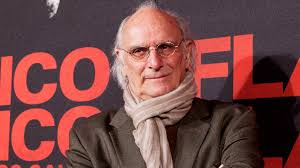Veteran Spanish film-maker Carlos Saura, director of award-winning films such as Peppermint Frappé, ¡Ay Carmela! and Tango, has died aged 91, the day before he was due to receive a lifetime achievement award at the Goyas, Spain’s version of the Oscars.
Born in 1932 in Huesca, Aragon – the same part of Spain as Luis Buñuel, whom he recognized as his mentor – Saura was taken by his family to Madrid during its Civil War. As a child, Saura listened with horror to its bombings, the trauma of its violence never leaving him, inspiring his third feature, 1965’s “The Hunt,” a portrait of a Franquist ruling class that won him a Berlin Silver Bear.
Saura’s most recent work, The King Of All The World, was the opening film at IFFI 2021. It was not the Indian premiere of the film, but its international premiere as well. The King Of All The World is a musical drama, which shows the artistic and musical connections between Spain and Mexico. The film was written and directed by Carlos Saura and had a cast of stellar actors and dancers from both countries.
He broke out internationally with The Hunt, which world premiered at the Berlin Film Festival in 1966, winning the Silver Bear for Best Director.
The Spanish film academy said “He died today at his home at the age of 91, surrounded by his loved ones,” the academy wrote on Twitter, describing him as “one of the most important filmmakers in the history of Spanish cinema”.
Saura focused in recent years on traditional music, producing several movies featuring flamenco singers and dancers, as well as fado or jota, the traditional song and dance of his birthplace, the Aragon region.
Spanish Prime Minister Pedro Sanchez tweeted: “Carlos Saura leaves us, a fundamental figure of Spanish culture.”
Aside from his relationship with Chaplin, Saura was married three times, to Adela Medrano, Mercedes Pérez and Eulalia Ramón, and had seven children.
Saura’s earliest films were made under the large influence of Buñuel, who even played a hangman in a censored initial scene of 1964’s “Llanto por un bandido,” a frustrated Western. Increasingly, as Europe embraced Saura, Saura embraced Europe and the psychological and relationship-based cinema of Ingmar Bergman.
Over the years, Carlos had participated in several film festivals and cultural events in India and was even honored at film festivals in Mumbai and Kerala in 2008 and 2013, respectively.IFFI officials told us then, “We celebrate Saura’s cinematic genius and recognize his cinematic expression that fuses music, dance, and images.
Many critics consider his best work to be “Cria Cuervos” (1975), an allegory of the dictatorship that suffocated his country until that same year, and which won the Jury Prize at Cannes a year later.
Saura was active until his final days. His most recent film documentary about the origins and evolution of plastic arts “Las paredes hablan″ was released in movie theaters a week ago. ”It shows his tireless activity and his love for work until the last moment″, the Film Academy said in a message, describing him as a fundamental and irreplaceable filmmaker in the history of Spanish cinema.
Carlos Saura is survived by his four partners, whom all marked his career: Journalist and documentarist Adela Medrano, actor Geraldine Chaplin, Mercedes Pérez and actor Eulalia Ramón, as well as seven children including producers Carlos, Antonio and Anna Saura. Antonio Saura also serves as the head of the sales company Latido Films.
In a 2016 interview with AFP, the filmmaker said that recognition in his country had come “with old age”, recalling the criticism, sometimes fierce, received by his first films.
He made his debut there in 1960 with The Delinquents and went in to win the Jury Prize for La Prima Angélica in 1974, the Grand Prize of the Jury for Cria Cuervos in 1976 and the now-defunct Grand Prix Technique for his Oscar-nominated Carmen in 1983 — his Flamenco-style adaptation of Prosper Mérimée’s novel using music from Georges Bizet’s opera.
